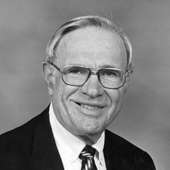- Sarah Byers receives 4-H Citizenship Award (2/13/14)
- Jerry and Katherine Arnold inducted into the 4-H Hall of Fame (9/7/13)
- Fourth of July food stand provides funding (5/10/13)
- Annual McGennis Youth Center report out (4/23/13)
- After eating he would say 'That was good' (2/14/13)
- Go go go go go (11/7/12)
- It is now Medicare open enrollment (10/24/12)
Opinion
Life experiences shared by career military veteran
Wednesday, November 8, 2006
A person who has devoted 31 years for his country by serving in the armed forces is a hero. One such person who chooses this community for retirement is retired Chief Master Sergeant Wayne K. Brown. He retired from the Air Force in 1974 as E9, the highest rank for an enlisted military person.
During the two years I served in the Army (a half century ago), I had a great amount of respect for the master sergeants. Those high ranking sergeants knew their stuff and they were dependable.
Many people have seen Wayne around town, but do not know who he is. Most of us do not realize that he was a military careerist. I had heard that he might have been a warrant officer or a high ranking enlisted person.
He generally goes to the post office about every morning either by riding with someone or by a cab. He is seen walking around with a brief case. When the Golden Corral was here, he generally ate lunch there. Now his favorite place to eat is the Golden Dragon.
Wayne, a person of faith, is an active member of the First Baptist Church. Some may not know him personally, but know his daughter, Brenda Golden.
In April, he called me and wanted to give me a book that he had written. That was nice of him to offer me a copy. It was as a result of a column that I had written about him in December 1998. He quoted verbatim from the column, which was published in the Vernon County Record.
He had given me a copy of Christmas greetings of various languages and I wrote about this and quoted some of the greetings. There are many ways of expressing Merry Christmas and Happy New Year in the many cultures. He had written messages in some languages that I had no way of deciphering. I do not know how he did it. As long as he used the letters which look like the letters in the English language, I was OK. When it came to using symbols for words, there was no way.
He gave me this book which was typed pages in a notebook. It contains a great amount of information. Each one is a story with many chapters. Here is a person who has had a great number of experiences, has developed international friends, and the book contains a great amount of information.
One of the things that he shared is that he is a speed reader. He can read a Reader's Digest in two and one half hours -- if he does not read the advertisements. I am not sure that I could turn all of the pages in that amount of time? Some of the pages contained jokes he had written and amusing stories from his experiences in the military service. Many parts had me laughing out loud. I really did not realize he had such a sense of humor.
Wayne K. Brown wrote one of his stories titled "Table Etiquette for Dining Out." It is as follows: "Once while eating in a cafeteria in St. Louis, Mo., I glanced up to see an elderly lady dunking her false teeth in her drinking glass. I told my friend, 'Look over there.' He looked just in time to see her put her teeth back in and drink the water. People were leaving tables all around her." That is one of many that he had authored.
He also wrote such things as, "Do you ever wonder what people really mean when they say, 'I'm sorry.' Do they mean they are sorry they did it? Or do they really mean, 'I'm sorry I got caught?'"
Wayne was influenced by the Great Depression of the '30s. His family, like most families during that time, was poor. His mother died when he was 5 years old. There were six children in his family, three older sisters and an older brother. He and his twin brother were the youngest. His early life was spent in a town of 500 people.
He began reading for pleasure in the first grade and still has the love of reading. Although his formal education ended when he graduated from high school, he has spent a life time learning and continues to learn new things. He and his twin brother were the only children in his family finishing high school.
After school, Wayne joined the Civilian Conservation Corps (CCC) for two years. He then received a letter calling him into the military in 1943.
His aptitude test showed that he had a natural talent in communications. During his entire career in the military he was in communications, most of it was in teletype operations-maintenance. In his military career he was stationed in Iceland, United States, Japan, Canada, and Vietnam.
He can speak and write Japanese. He has close friends in Japan. He has visited the Berik people in Indonesia where his friends were translating the Bible in their language. I met his two friends who were visiting him during Bushwhacker Days.
I am grateful to Wayne for sharing these and much more with me about his life and his career. Much thanks goes to retired Chief Master Sergeant Wayne K. Brown for his service to our community and the continuation of his service to our community.

